#Demographic analysis
Explore tagged Tumblr posts
Text
What Is Market Research: Methods, Types & Examples
Learn about the fundamentals of market research, including various methods, types, and real-life examples. Discover how market research can benefit your business and gain insights into consumer behavior, trends, and preferences.
#Market research#Methods#Types#Examples#Data collection#Surveys#Interviews#Focus groups#Observation#Experimentation#Quantitative research#Qualitative research#Primary research#Secondary research#Online research#Offline research#Demographic analysis#Psychographic analysis#Geographic analysis#Market segmentation#Target market#Consumer behavior#Trends analysis#Competitor analysis#SWOT analysis#PESTLE analysis#Customer satisfaction#Brand perception#Product testing#Concept testing
0 notes
Text
btw hermes is low empathy, high sympathy, ??? compassion
apollo is high empathy, mid sympathy, high compassion
dionysus is high empathy, low sympathy, mid compassion
artemis is mid empathy, mid sympathy, high compassion
#post with one (1) demographic (literally just me)#hermes reverse engineered morality he's great#he follows his self interest. and that interest is for people to like and value him So Much#dionysus has the highest social stats and lowkey thinks everyone has that same comprehension#apollo wants to strangle him every time he talks about it.#it took me SO much analysis to figure that one out. WHAT DO YOU *MEAN* “SHOULDN'T THIS BE INSTINCTUAL FOR EVERYONE LOL”???!!#pjo hermes#toa hermes#toa apollo#pjo apollo#pjo dionysus#toa dionysus#pjo artemis#toa artemis#trials of apollo#toa#the trials of apollo#pjo hoo toa
94 notes
·
View notes
Text
one of the things that I found particularly interesting in Demigods of Olympus is that it finally gives the best direct comparison we've seen so far between Percy and another character's experiences in terms of academics and particularly ableist discrimination.

The way Zane describes his experiences and what we see in his POV is that, while he is similarly discriminated against for his "atypical" behavior and blame is placed on him, the only sorts of punishments he receives for this are relatively benign, such as an increase in counseling. (It is also notable that Zane is somewhat autistic-coded, such as having the "incorrect" scripts when speaking with adults and Sam explicitly reminding him to remember to make proper eye contact.) Percy, on the other hand, similarly experiences discrimination for "atypical" behavior, but whereas Zane is treated as "too smart for his own good" and given slaps on the wrist, Percy is automatically labeled as aggressive, destructive, and a trouble-maker based on preconceived assumptions about him and is more severely punished, such as being frequently expelled.
We rarely get this level of direct comparison between Percy's experiences and that of another character, particularly such similar experiences, so looking at the differences is really interesting to gauge what their different experiences with ableist discrimination is like - and how it could potentially tie into intersectionality and other forms of discrimination at play for them.
For instance, Zane's parents are generally heavily implied to be middle-class and/or generally financially secure, versus Percy who grew up poor, so it could be classism in combination with ableist discrimination. Alternatively, it could be intersectionality with racial discrimination, as neurodivergent behavior in people of color is significantly more likely to be punished more severely and labeled as aggressive or disruptive behavior due to racist preconceptions - particularly since we know Percy's experiences with ableist discrimination are also somewhat based on assumptions people make regarding his appearance. Both Zane and Percy are racially ambiguous - Zane's appearance essentially being completely unspecified, but Percy at least having some notable details such as having a deep tan complexion. If not racism, it could also be colorism, which in this context often has similar intersectionality. There's a lot of potential options.
It's just very interesting to me! I love having such a direct point of comparison to examine the experiences of two characters within.
#pjo#demigods of olympus#riordanverse#percy jackson#zane carver#analysis#disability#adhd#one of my biggest gripes with analysis that i see often in the fandom is people erasing Percy's experiences with ableism#particularly academically and instead electing to frame his experiences as ''only possibly being from [x] - there's no other explanation''#which is really sad to me because it just highlights how little people understand what ableism and ableist discrimination look like#and simply seem unable to process our experiences and stories meant to reflect our experiences#so having another frame of reference to compare Percy's experiences against is REALLY nice and particularly fun for me personally#because it gives an opportunity to highlight both the general disabled experiences Percy faces due to his adhd/dyslexia#but also how that potentially ties in to intersectionality with other demographics he's a part of or may be a part of#because now we have a point of comparison between how two disabled characters are experiencing similar discrimination for the same thing#but there *are* differences between them in specific ways that potentially indicate something occurring in addition to just ableism#which is fascinating! and allows those discussions in the context of intersectionality WITHOUT erasing disabled experiences! yippee!!!#anyways this is mostly off the noggin since ive just been rotating the thought for a couple of days#chewing on this chewing on it chewing on it
148 notes
·
View notes
Text
Finally, Gorgug Thistlespring...
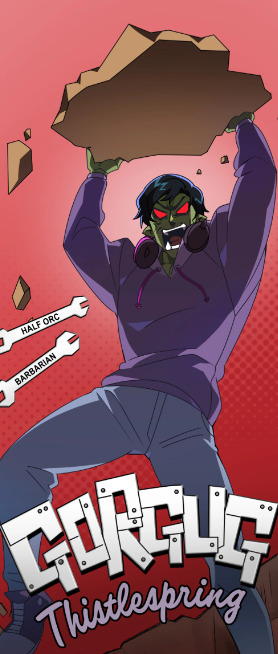
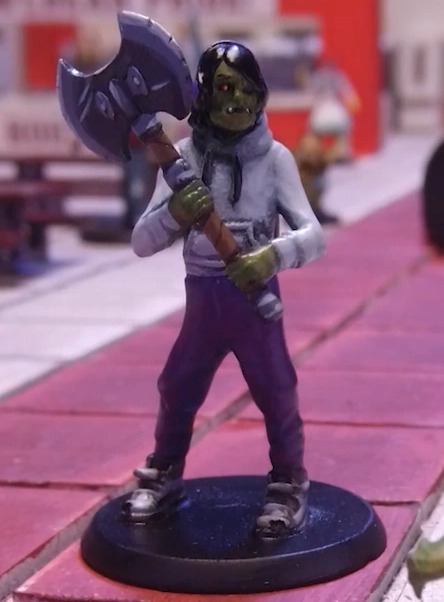

Gorgug's design is very good. I really like how he looks in the Webtoon. I really like how he and Ragh look very similar, because they're both half-orcs.
What I don't like is how Gorgug is portrayed. Because our first interaction with Gorgug in the podcast is this gloomy teenager who's in a house that's too small for him, with parents that don't understand him, who feels out-of-place and lost. And in the Webtoon, the first time we see him he goes into a rage and suddenly he's this big looming figure. It's not until chapter three that we see him as he is, when he's with Kristen.
Also, the fact that his Webtoon introduction panel is him in a rage just feels wrong to me, as does that fact that his panel includes the motif of an artificer, which (SPOILERS!) he doesn't multiclass into until late season 2.
All that to say, Gorgug's design? Peak. Gorgug's portrayal? Fail.
#thoughout writing all of these my partner and i have just been going ''Gorgugs'' ''mmm.. Gorgugs'' back and forth#anyway. it is almost 2am and this is the final analysis for the bad kids. im probably gonna write somethign about how shit the NPCs look#at somepoint. later. the demographics for the npcs are off#gorgug thistlespring#fantasy high#fantasy high webtoon#020425
71 notes
·
View notes
Text

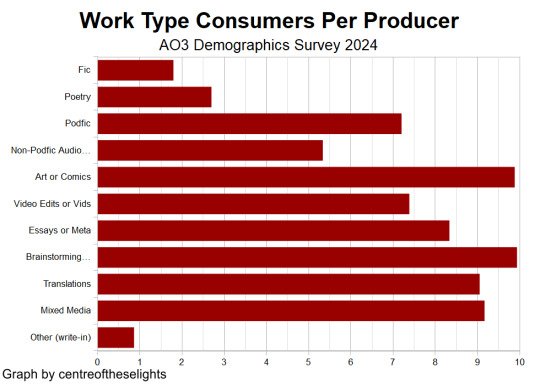
In the AO3 Demographics Survey 2024 - an unofficial demographics survey of 16,131 AO3 users - 44% of respondents used AO3 to consume art or comics, and 17% used the site to read essays or meta.
To see more analysis, including transcripts of all the data shown on the graphs, please view the full results on AO3.
#ao3#archive of our own#fanfic#fanfiction#fanfic stats#fanfiction stats#fanart#fanartist#podfic#podficcing#fan meta#fan translation#fanworks#fanwork stats#fanwork statistics#fandom stats#fandom analysis#ao3 demographics survey 2024
221 notes
·
View notes
Text
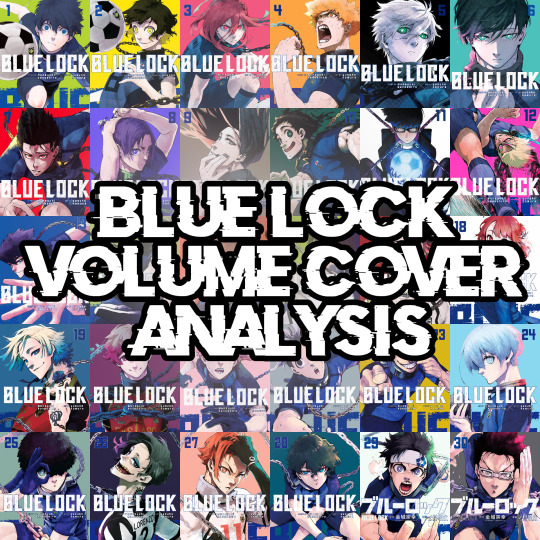
Blue Lock Volume Cover Analysis (Spreadsheet Edition)
I regularly update this post with analysis on the Blue Lock manga volume cover illustrations. But I find it doesn't really facilitate at-a-glance referencing. The post also only focuses on visual motifs, excluding any characters depicted without unusual chains or auras.
Anyway, hyperfixation kicked in, after Kaneshiro hinted to a fan that there was meaning to the numbers on the volume covers and/or jerseys. (tried finding the source twt/translation for this but no luck—please lmk if this rings a bell with anyone else!)
Here's a spreadsheet documenting all the released volumes. This covers ALL volumes, summarises my earlier analyses, and proposes speculative guesses as to the significance of some of the volume numbers/jersey numbers.
Check it out on Google Drive.

I've also dumped all the cover images into an Imgur album to save people squinting. English language covers were sourced from the UK e-book releases, while the Japanese ones come from Bookwalker or leaks.
#blue lock#bllk#blue lock analysis#bllk analysis#blue lock manga#bllk manga#blue lock manga spoilers#boinin talks bllk#blue lock volume covers#bllk volume covers#mine#target demographic for this? me.#but hopefully another analysis nerd will find it useful ⚽#corrections/suggestions welcome!! just reply to this post
57 notes
·
View notes
Text
Said it before and I'll say it again. You can just say "kids media tends to have certain qualities that appeal to me more than adult-targeted media" instead of insisting it's somehow more enlightened than media for fully-grown humans.
#THE QUALITY OF A WORK IS NOT DETERMINED BY ITS DEMOGRAPHIC AND YOU NEED TO FUCKING READ A WIDE VARIETY OF GENRES IF YOU WANT PEOPLE TO TAKE#YOUR ANALYSIS SERIOUSLY. GOD. FUCK. *bangs my head on a wall for a thousand years*
44 notes
·
View notes
Text
Greymon [Digimon] vs. Chomper [Land Before Time]


#greymon#digimon#chomper#land before time#the land before time#saurnament#poll#tr#tr3#tr3a#tr3a36#3a#3#good luck choosing everyone#if my demographical analysis is correct this choice will suck for everyone
26 notes
·
View notes
Text
never in my life have i been a part of a fandom with such a consistently incredible output of good fic as the locked tomb. It's haunting me. what are they putting in the water out here
#when i have it in me i will write too mark my words#this has been the topic of many kitchen conversations with my roomate who is in different fandoms over the past few weeks#my current running theories are a) that the general age demographic is higher and#b) lots of queers into literary analysis makes for good fanfiction#and c) the alectopause is one hell of a drug#tlt#it also just might be a matter if statistical coincidences! bias! i don't know!
15 notes
·
View notes
Text
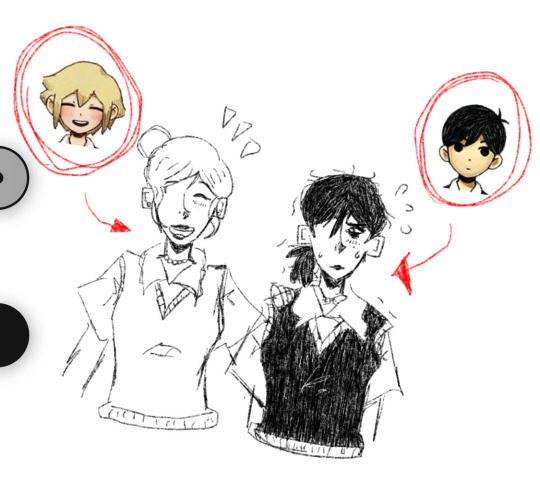
Thought I had today that I decided to doodle. Oh em gee I wonder what musical cleg’s been obsessing over for the last like month
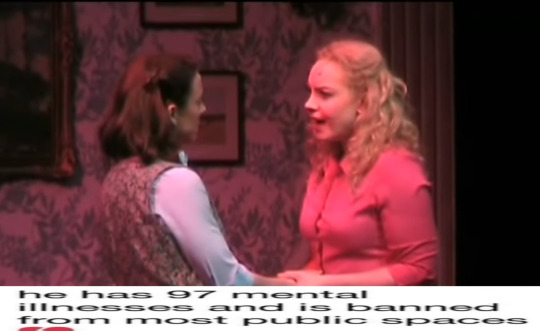
#there is guaranteed to be like. almost ZERO FANFOM overlap here#the target demographic here is me and me only. HSJSKSK#anyway. anyway I love blood brothers so much#the narrator is something btw. or stranger.#I feel like he serves something’s purpose in like… the actual narrative but he reminds me more of stranger#also I think mrs Lyons as basil is SO fucking funny because like#they are quite similar… but they have like the exact opposite thing going on#basil is so afraid of abandonment and is deadest on sunny not leaving him#whereas mrs Lyons wants Mrs Johnstone as FAR away from her at all times as possible#JSJSKSK it’s even funnier because these BOTH stem from their abandonment issues.#genuinely though that mrs lyons and Mrs johnstone confrontation scene reminds me SO heavily of the basil fight#it’s also like. my favourite scene or at least it’s up there l#expect an analysis post on that one day#anyway. uh. these two. these two nestled in my head and are firmly staying there#they make me so sick so violently ill and I love them for it#omori#omori au#omori sunny#omori basil#blood brothers#don’t mind my designs for them btw. I had to do that and the designs I made grew on me so they’re canon in my mind now#<— excluding the outfits ofc#though tbf they don’t really have canon designs to begin with so… I’m right!!!!#hehe!!!#mrs johnstone#mrs lyons#woohoo#my art
8 notes
·
View notes
Note
Aro culture is buying pride merch with the agender flag because people always forget about us
.
#Anonymous#aro culture is#aro#aromantic#actually aro#actually aromantic#ask#honestly i am always curious for widely available pride merch which demographics are more likely to be financially worth producing for#like. in the sense of 'if you could theoretically have infinite identities represented and every new identity who asked for a product had#a high quality image of their flag from which you could produce your product... which identities buy more?#i assume more well-known identities are... well. more accessible to the average person#but i've heard periodically that certain flags are hard to justify designing products for due to the cost analysis of design/production#versus the likelihood of them being bought#though i think that *primarily* effects small businesses in which you pre-order a certain amount of a product in order to sell#not made-to-order products#(science brain go brr)
49 notes
·
View notes
Note
Not the original Anon but I think the rise of Europe meant that after the Black Death Europe underwent the Renaissance and Industrial Revolution and became a global power so did the former create the conditions for the others?
I sort of thought that was what anon was talking about, so I might as well answer it here. TLDR: there's a big debate about this, and historians have not come to a consensus.
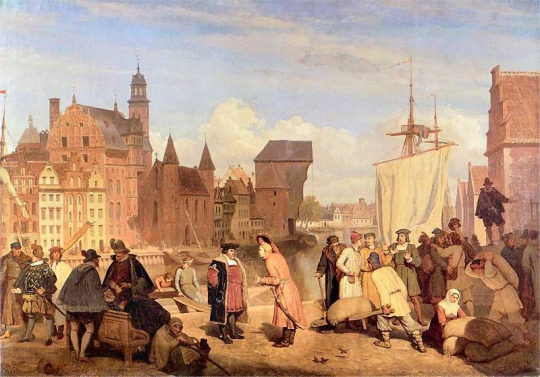
When I was an undergraduate, I took a course on the origins of capitalism by the late Professor J.W Smit, and one of his lectures was on the theory that the Black Death created the preconditions for the Commercial and then Industrial Revolutions, by essentially killing about 30-50% of the population while leaving their property (land, livestock, buildings, improvements, liquid capital, etc.) intact - thus creating a much higher rate of capital-per-capita that could then be invested in more capital-intensive, higher value-added industries.
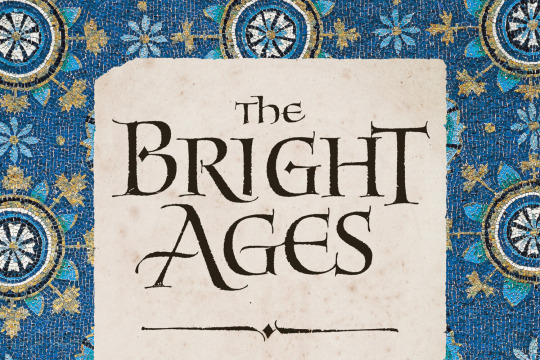
On the other hand, a lot of medievalists who study the High Middle Ages argue that the period from 1000-1300 saw substantial economic growth due to population growth that enabled both an expansion of agricultural production and the first wave of post-Roman urbanization, and that the Black Death was an enormous setback for huge swathes of Europe who would not recover their pre-Plague levels of population and economic production until the 19th century.
While this might sound like squishy centrism, I think the reason that there is no consensus is that both sides are simultaneously right and wrong. It is true that the Black Death made profound socio-economic change possible by disrupting serfdom, raising wages, and deepening capital pools. It is simultaneously true that the Black Death also created a downward spiral of lower population leading to lower production leading to lower population, which could cripple entire regions for centuries if they were unable to adapt to changing circumstances.
#history#historical analysis#black death#european history#commercial revolution#industrial revolution#economic history#demographic history#medievalism#medieval economics#economic development
29 notes
·
View notes
Text
I just finished book five of A Series of Unfortunate Events, and I gotta say, I think this one has been my favorite of the ones I've read.
The introduction of the Quagmire triplets and their suspiciously similar circumstances to the Baudelaires adds new depth to the series, as well as kid characters in a series that, for something soundly in the middle grade demographic, has had an astonishing lack of children other than the main characters so far.
Snicket's tangents have become more specific, more related to his past with Beatrice (she's the protagonists' mother, right? Even if I hadn't been spoiled on this a long time ago, I would've guessed it by now, they aren't really trying that hard to hide it).
Olaf's plan this time around, while convoluted as usual, did indicate that he's learning more about the protagonists' usual methods of dealing with his plans, and that he's not underestimating them as much as he did at the beginning of the series.
And yay, the VFD has finally been mentioned! We're getting a bigger focus on the overarching story, and I'm happy to see it! I'm excited for the Baudelaires to break away from the inevitably doomed parade of guardian to guardian and strike out on their own to solve the mysteries surrounding the series so far. I'm guessing that'll happen next book, and I'm hyped for it!
The adults being overwhelmingly useless (when not outright malicious) to the siblings, which used to annoy me with how heavy-handed it was, is something I've grown to understand. Over the course of the previous books, I've realized that I need to stop looking at everything so literally, taking everything so seriously and assuming that it's meant to be somewhat realistic. I mean, it's really more of an allegorical thing, right?
It's a representation of how it feels to be a kid, unwanted, seemingly all alone in the world, repeatedly let down by all the adults in your life...
To be technically dependent on adults for care, but to know that you can't rely on them for anything, can't tell them what's troubling you, because they either can't or won't help in any meaningful way, so if you want anything done, you have to do it yourself...
To know the truth, to know that something is wrong, but to be told again and again when you try and report it to the adults you're supposed to tell things to that you're lying, exaggerating, or just plain seeing things that aren't really there...
To have all your points ignored, brushed off, or labeled as "disrespect" even when they make sense, and to never be able to sway the adults' opinions, even when you point out the glaring holes in their logic, because they've decided from the beginning that they're right and you're wrong simply because they're an adult and you're a child...
And to rinse and repeat the previous two points over and over again, with the adults never realizing that maybe you do know what you're talking about, because they can't handle children possibly knowing more about anything than they do.
That's what the Baudelaires' experiences are all about, and it really is an unfortunate thing.
Okay, I have a lot more I could say, but blood pain period bad and I've had trouble putting my thoughts into coherent words all day. I hope this was somewhat understandable.
(Oh, and as a side note, I experienced The Austere Academy by reading it out loud to my parakeet, Troy, as his bedtime story, usually one chapter a night. It was a great way to read it, and I hope Troy enjoyed it as much as I did :D)
#a series of unfortunate events#asoue books#the austere academy#bookblr#reading#middle grade demographic#my thoughts#lemony snicket#analysis#childrens books
6 notes
·
View notes
Text
I need them to stop talking about the tayl*r sw*ft endorsement. Because I'm gonna lose my fucking mind.
#i SWEAR I get it. I get why it's a big deal and I get that it's a win#I get that this has weight with voters in my demographic even!#But I'm watching NBC. I'm watching a news organization for post presidential debate analysis.#I'm begging you to stop talking about a pop star and focus on the debate that was just held. please.#debate spam#words#(asterisks used to prevent this from showing up in searches I don't need that lmao)
6 notes
·
View notes
Text
DAILY PURPLED DAY 140 - I can no longer take it anymore I thought I could hold in my anger at the live action movie but I could not oh god it’s so bad

#WHERE IS HEROBRINE#WHY IS THE END NOT IN THE TRAILER#WHY IS IT SO HAHAMEMEZ AND NOT LIFE CHANGING#IS THE BEAUTIFULLY WRITTEN END POEM NONEXISTENT OR SOMETHING#WHAT ABOUT THE MESSAGE OF SURVIVAL AND CREATIVITY#WHY ARE PIGLINS THE VILLAINS#WHY IS LIKE EVERYTHING OFF#THE LIGHTING. THE COLOR OF THE PORTAL#WHY IS JACK BLACK STEVE#WHY IS IT EVEN LIVE ACTION#AGAIN WHY DOES IT LOOK LIKE IT WILL BE ANOTHER BRAINLESS AND SOULLESS KIDS MOVIE MADE FOR MERCH#KIDS DESERVE DEEP MOVIES TOO HOW ELSE WILL THEY LEARN MEDIA LITERACY AND LITERARY ANALYSYS#I misspelled analysis ignore that#PLUS THEY SHOULD JUST GET TO HAVE INTELLIGENT MOVIES BECAUSE EVERY AGE DEMOGRAPHIC DESERVES NOT SLOP#AAREEFWYAHYAHDYWEHUEFGFRWUY#purpled#pp.art#daily.purpled
6 notes
·
View notes
Text
On Gendered Storytelling
Okay, so.
For the purposes of this discussion, I'll be basing my arguments on the two most prevalent genders; those being cis men and cis women. There are other genders, and any time anybody tells me there aren't, we'll add another, but this is going to be a broad-strokes analysis which such nuances won't really assist in dissecting, so I'm going to gloss over that stuff. Know that when I say "men" and "women" for the purposes of this mini-essay, I'm referring to the "average" man and the "average" woman. I'll be making plenty of generalizations in the proceeding text, but every rule has exceptions aplenty, especially when discussing gender, and nothing I say is going to be universally applicable.
Okay? Okay.
My household consisted of four men (myself, my two brothers, and my father) and one woman (my mother) for the majority of the 2000s-2010s. During that time, our family got very much into the Marvel Cinematic Universe; or at least, most of us did. Despite repeated attempts to engage our mother in the universe, my brothers and I failed to capture her interest. More than once during trips to the theater to view installments of the films, she fell asleep halfway through. This made sense during Thor: the Dark World, but less so during our viewing of Ant-Man, which, despite several notable plotholes, was overall an engaging experience for 15-year-old Aro.
More recently, mom has been trying to connect with us through communal viewing of reality TV based on our interests; LEGO Masters is commonly playing, due to my brother's interest in legos, and ever since I got more into cooking, we've also added Chopped and Master Chef to our repertoire.
And it's all boring as sin.
Oh, we watch it. It's nice to see mom happy, and to spend time with her; she spends so much time at church nowadays, and given how the rest of the family has stopped attending mass since the youngest turned 18, that means that the reality shows are about the only social time we get with her. And I do like spending time with her, but I frankly couldn't give a 15-minute ice cream sundae who wins this episode of Chopped.
So I got to thinking why that is. I voiced some of this to my parents, wondering if it had something to do with the culture in which we are raised; men are typically seen as active participants in society, expected to be breadwinners for their families and more involved with social progress; while women are typically put in a more passive role, as the caretakers and raisers of the next generation.
My father pointed out that you can't knock the biological component; men, generally having higher levels of testosterone than women, are typically more aggressive and competitive than the fairer sex. As such, they'd be more receptive to action-heavy films that otherwise lack substance, a la the Transformers franchise. I don't love to reduce things to biological essentialism, but I do think he's got a point; we know that testosterone, like all hormones, has a significant impact on mood and behavior.
That said, I don't think it's purely a matter of people with more testosterone finding action more engaging; the shows I mentioned above are all competitions, after all, which you would expect to resonate well with competitive people (generally men). I also know for a fact that many action films, made poorly, fail to resonate with audiences of either gender. Green Lantern comes to mind as an example of a superhero show that nobody liked, and I already mentioned Thor: the Dark World above, just to solidify my point.
I think the main difference is in the stakes. In a lot of action movies, the stakes are extremely high; the stability of nations, the power of an organized crime syndicate, the world at large are all common stakes in such films. Meanwhile, a lot of reality shows have much more personal stakes; the relationship between family and friends, the love between two strangers, the bereavement of a widow. Both stakes have their place; I want to get along well with my family, but I also want the planet to not explode. But for some reason, media targeted towards men seems to focus mainly on the former, while media targeted towards women often focuses on the latter.
And I don't think it has to be this way. There are action movies, for instance, which focus a lot on lower, interpersonal stakes. I seem to recall that Venom was a lot more popular among female audiences than expected, and conversely a lot less popular among male audiences than expected, for basically telling the story of a man and his symbiote like it was a romantic comedy. John Wick has a dark order of assassins operating in the background, but the debut film is just a story about a man getting revenge for the death of his dog. Women love John Wick! (Here I'll remind you of the notes about generalization back in paragraph one.)
Meanwhile, there are stories with very high stakes and not a whole lot of action. Interstellar threatens the extinction of the human race, but only due to a global famine, with nary a punch thrown throughout the entire film. Yet it seems to resonate with men just as well as with women, perhaps even moreso.
I would assert, therefore, that it is the difference in stakes which resonate more with one gender or the other, and that men typically prefer situations with grander stakes, while women typically prefer situations with more personal stakes. I'm still not sure precisely why that is, but I'd love to get the input of others, if anyone wants to contribute their two cents! Or maybe you think I'm wrong! I'd love to hear about that, too! Leave a reply and let me know why I have no idea what I'm talking about! Thanks!
9 notes
·
View notes